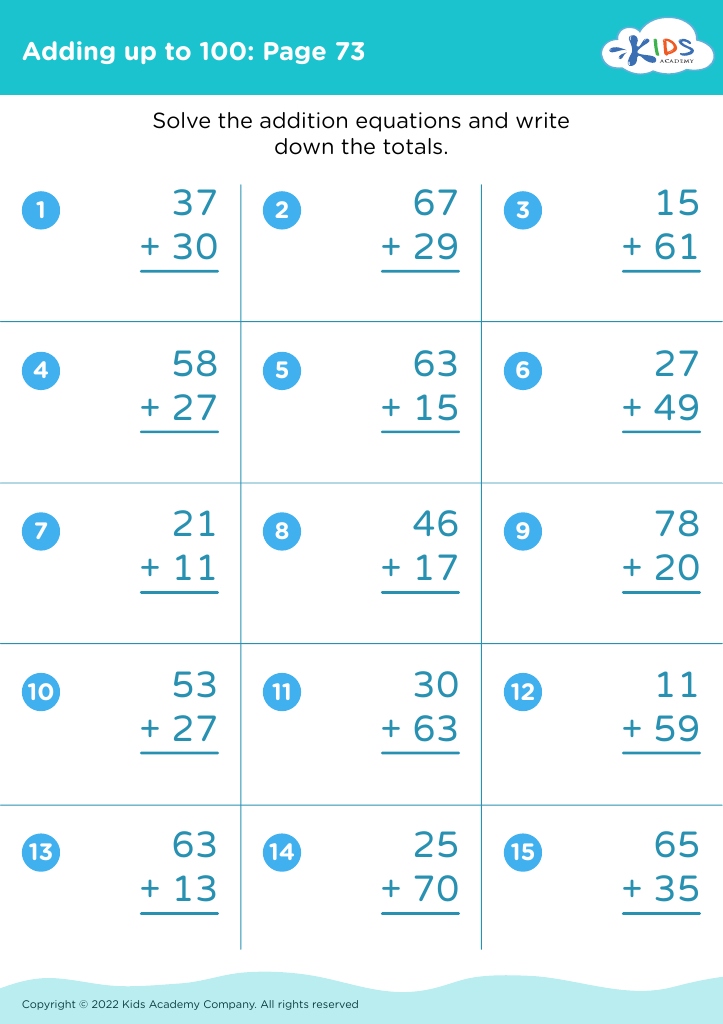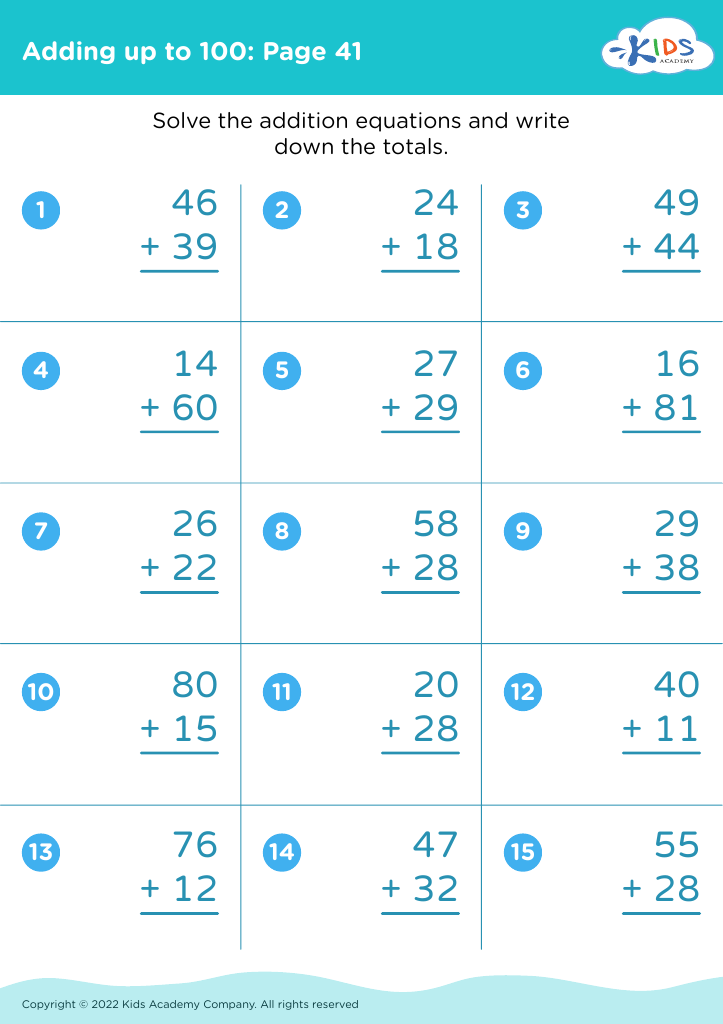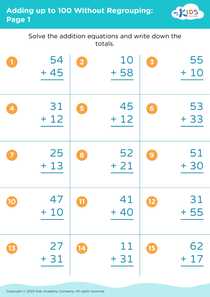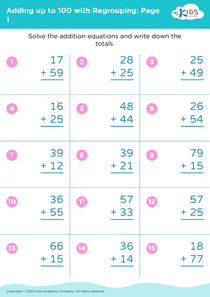Basic Math Skills Grade 2 Adding up to 100 Misc Worksheets
5 filtered results
-
From - To
Enhance your second grader's math confidence with our collection of "Basic Math Skills: Adding Up to 100 Misc Worksheets." Designed for grade 2 students, these engaging worksheets focus on fundamental addition skills, encouraging practice with various problems that align with learning objectives. Each worksheet offers a mix of fun and educational activities, helping students develop numerical fluency while honing their problem-solving abilities. Ideal for home or classroom use, these resources foster a solid math foundation, ensuring your child is well-prepared for more advanced concepts ahead. Download now to make math practice enjoyable and effective!
Parents and teachers should care about basic math skills, particularly in Grade 2, for several compelling reasons. Mastery of addition skills that culminate in sums up to 100 lays a critical foundation for future mathematical understanding. By age 7 or 8, children develop a sense of numeracy that influences their confidence and proficiency in academic settings.
At this stage, students learn essential strategies, such as number combinations and mental math, which are crucial for problem-solving in more complex math, like subtraction, multiplication, and division. Proficiency in basic addition not only promotes a strong math foundation but also encourages logical thinking and decision-making skills.
Moreover, fostering strong math skills boosts students' self-esteem. Children who can confidently solve addition problems are more likely to enjoy math, leading to a positive attitude toward learning in general. This piques their interest in mathematics and keeps them engaged in the subject.
Additionally, parents and teachers can facilitate a growth mindset by emphasizing practice and celebrating progress in basic math. Through interactive activities and supportive environments, they can nurture a lifelong appreciation for mathematics, helping children understand its relevance and applications in everyday life. Prioritizing these skills ultimately equips young learners for academic success and personal development.















